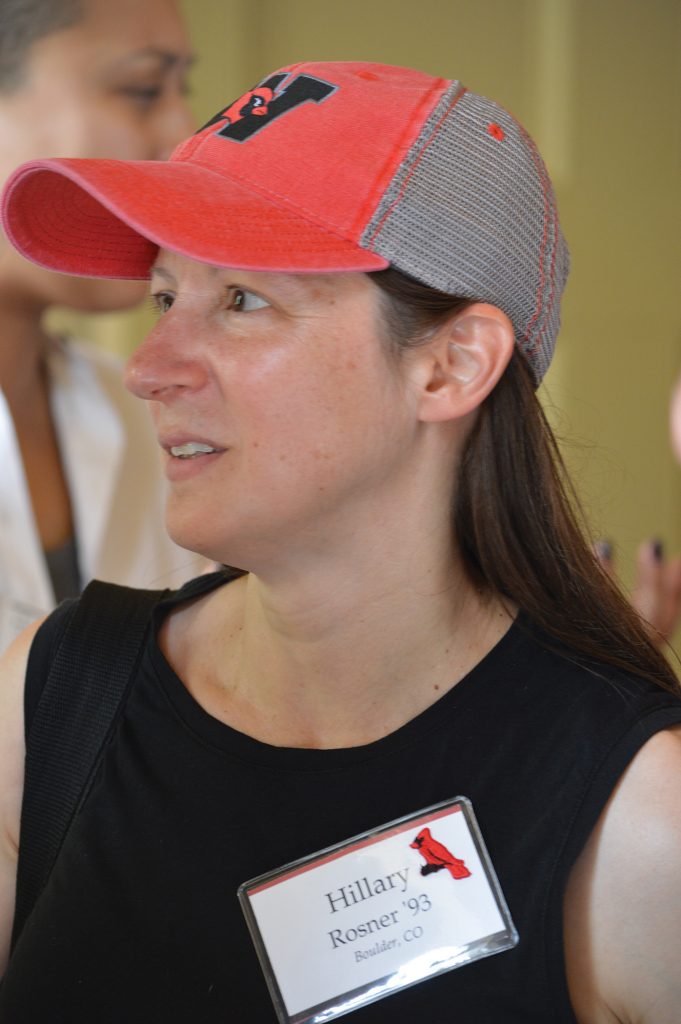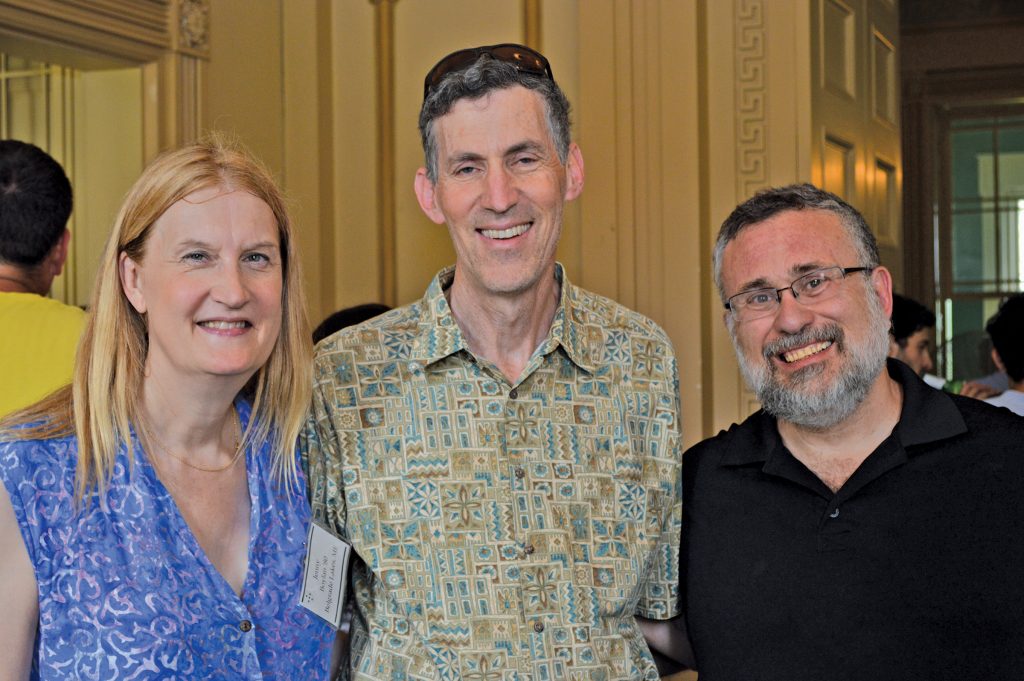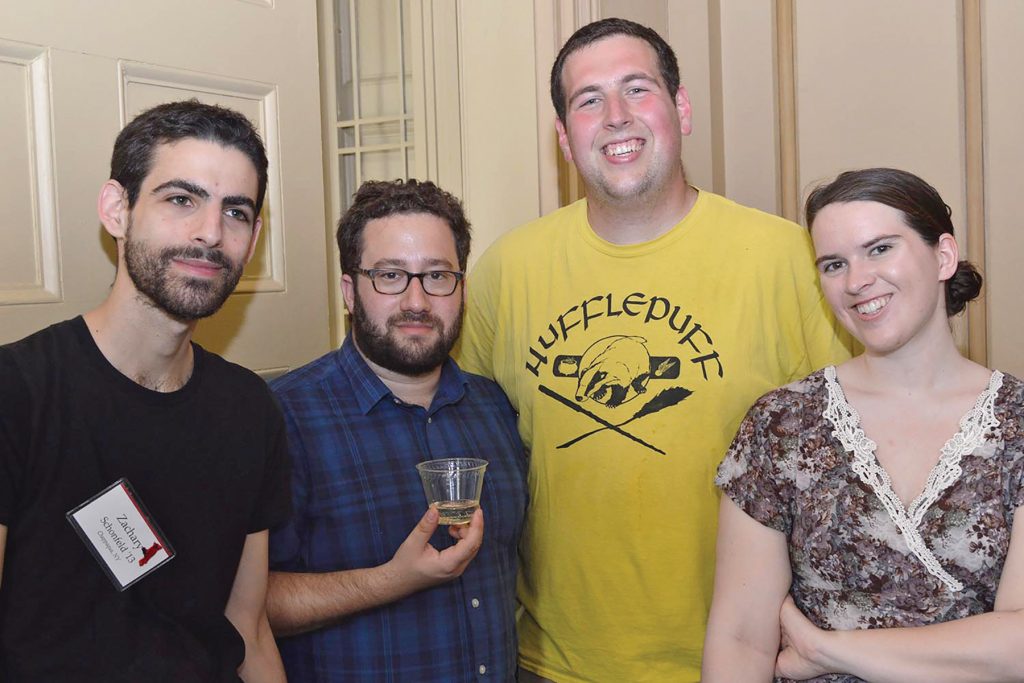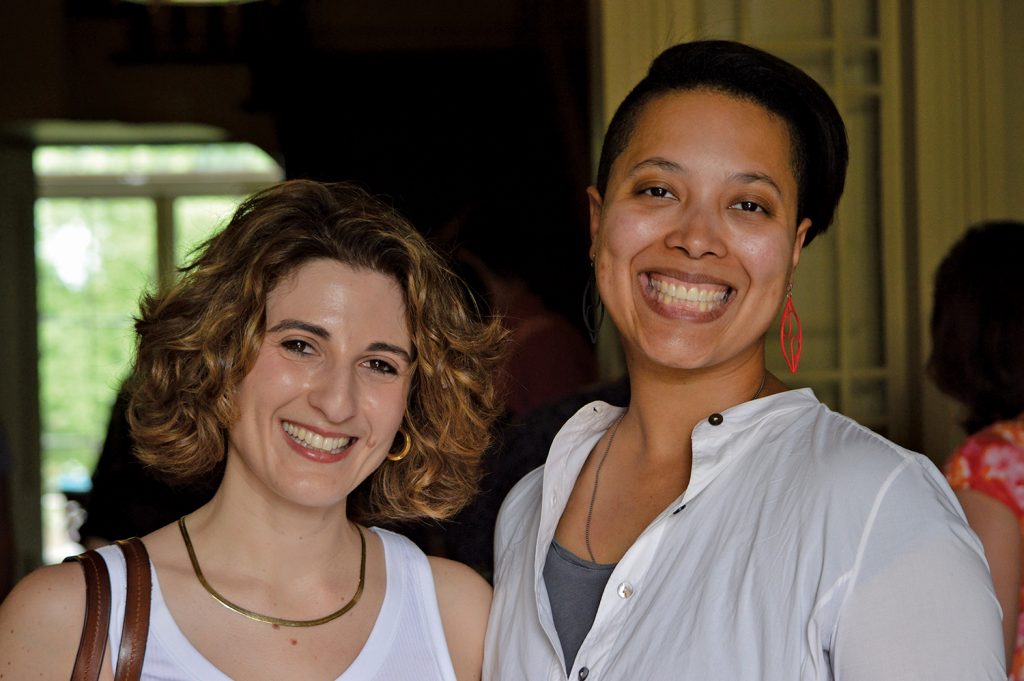Argus: 150th Anniversary Celebration
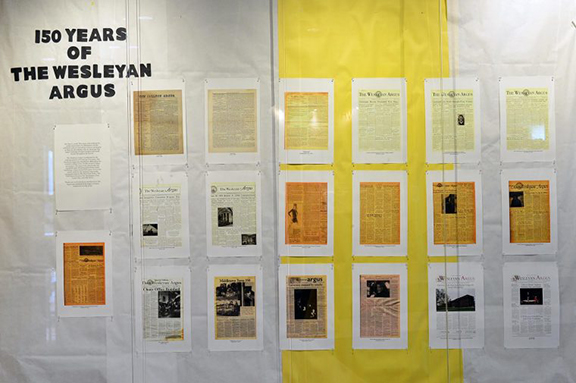
On May 26, The Wesleyan Argus 150th Anniversary Celebration was held at Russell House during Reunion & Commencement Weekend. Current students and alumni, who contributed to The Argus from the 1970s through the present day, shared memories, caught up with old friends, and discussed the state of journalism today. The event was co-sponsored by Wesleyan’s Writing Certificate.
Hillary Rosner ’93
Reporter in 1992–93
Currently a freelance journalist specializing in long-form print stories about science and the environment; contributing editor for the website, bioGraphic; scholar-in-residence at the University of Colorado’s Center for Environmental Journalism.
“A story that has stayed with me after all these years involved a labor dispute among the cafeteria workers. I remember being really nervous to interview the union leader, and then I also remember having a great interview with a kitchen worker at MoCon. I came away thinking how incredible it was that as a journalist you could sit down with people from all different walks of life and hear what was on their mind. I was hooked.”
“I’ve been fascinated over the years by how many journalists I meet who went to Wesleyan. For a school that has no journalism program, it’s pretty striking. I can only assume it has to do with the intellectual curiosity that the school so highly values, and the way Wesleyan students are taught to be unafraid to question anything (everything).”
b Jennifer Finney Boylan ’80
Columnist (“Goat Collum”), editor-in-chief in 1980
Currently contributing opinion writer for The New York Times, and Anna Quindlen Writer in Residence and Professor of English at Barnard College of Columbia University.
“I learned a lot about fiction writing from my writing professors at Wesleyan—F.D. Reeve, particularly, in the College of Letters. But it was the other students who actually taught me how to write news and opinion. I went in to see Tim Redmond [’80] my first week of senior year with a couple of columns and said, ‘What do you think of these?’ And he sat behind his desk—very impressive that the editor has a special desk—and read them, with both criticism and generosity. And said, ‘These are great, we’ll use them.’ And then, just as generously: ‘And this is how to make them better.’ And he showed me how. [..] I’d always wanted to be a writer, but it was at The Argus, at the hands of other students, that I was actually encouraged. I’d spent a lot of time being told ‘No’ up until that point. The students at The Argus said ‘Yes.’ It taught me how to believe in myself as a creative soul.”
“As a closeted transgender person, in the years ahead knowing how to tell a story—in this case, my own—with clarity and compassion was the thing that literally saved my life. Six years after graduation, I was standing at the edge of a cliff in Nova Scotia looking down at the ocean below me, thinking I should dash myself on the rocks. Instead I drove home, all the way back to Baltimore, where I fell in love—and began to write the story that made sense of my weird life. You could say that the things I started to learn at The Argus really were the things that talked me off the ledge and enabled me to find the courage to live my life for real, and to tell that story with humility and grace.”
Zach Schonfeld ’13
Staff writer, editor of The Ampersand, arts editor, 2009-13. Current senior writer for Newsweek magazine, and occasional contributor to Pitchfork, Stereogum, and other publications.
“I think it’s crucial for young journalists to have an opportunity to develop their voice and hone their reporting skills without having to worry about page views and layoffs and collapsing revenue models, which is the unfortunate reality of corporate media companies today. In retrospect, college journalism feels like a nice utopia, since we were free to produce good work without any capitalistic objectives. Also, I think college journalists frequently play a significant role in uncovering campus stories and holding their college administrations accountable. […] I don’t know whether this has changed. I do think there is more media scrutiny on college papers due to the inane tenor of the culture wars, which isn’t necessarily a good thing.”
Miriam Gottfried ’05
Coeditor-in-chief, news editor, reporter, restaurant critic/editor-at-large, 2001–05. Currently reporter at The Wall Street Journal.
“When I was coeditor-in-chief of The Argus with Xiomara Lorenzo ’05, we were still using ancient computers to edit and lay out the paper. I remember being in the office late one production night and having the whole system crash before we could send that night’s edition to the printer. We worked all night to redo the layout, and I think someone ended up having to drive the file to the printer personally at around 8 a.m. the next morning. The paper’s delivery was late the next day, but no one on campus realized we had pulled an all-nighter to get it out. After that harrowing experience, I decided to put in a request with the University president (Doug Bennet at the time) to allocate money from his discretionary fund to assist us in buying new computers.”
“People take college journalism more seriously today than they did when I was at Wesleyan. I think this is a result of its wider dissemination via the internet. When I was in college, alumni had to subscribe to the print version of The Argus to read most of the stories. That limited its audience and its power to inform the broader public. Now, I can just go online and read what’s happening on campus. As a news consumer, there is little difference in value between the information I read in The Argus and the information I read on any other site. I also think the internet has helped inspire students to do more far-reaching and impactful stories because they know the rest of the world—not just the Wesleyan community—can read them.”

